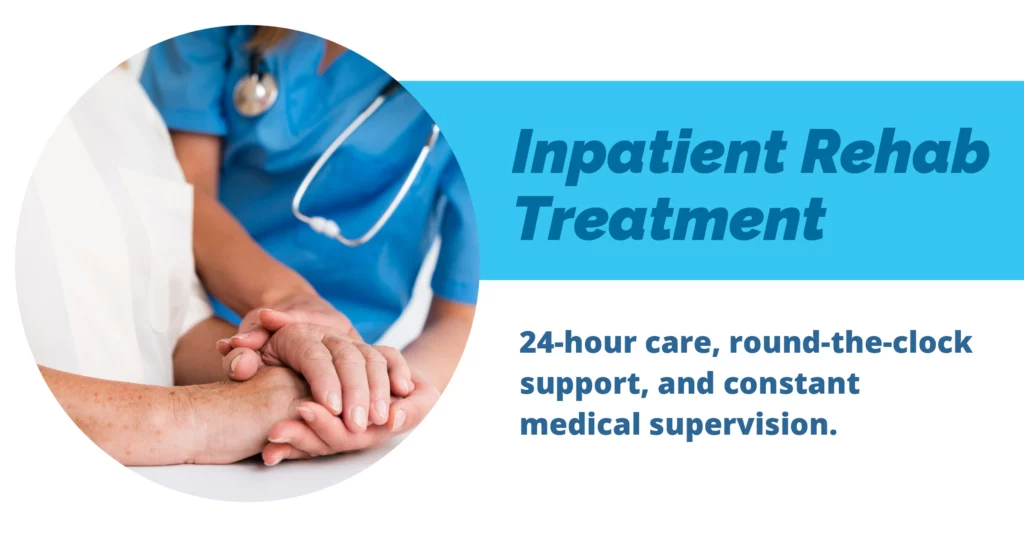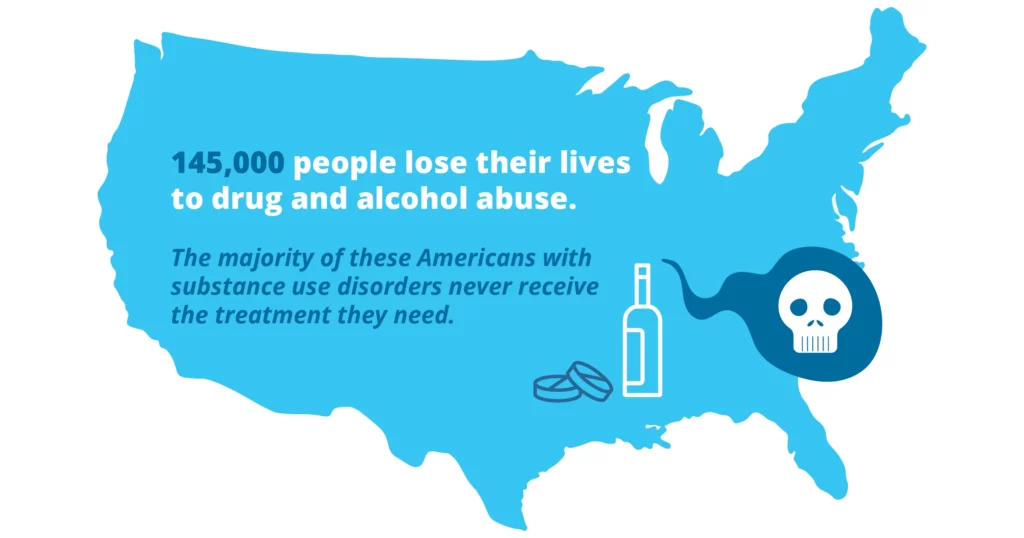Each year, 145,000 people lose their lives to drug and alcohol abuse in the United States. Unfortunately, the majority of Americans who have substance use disorders never receive the treatment they need. Because of this lack of accessibility to inpatient drug rehab programs and treatment facilities, overdose deaths have tripled since 1990.
If you or someone you know needs help with addiction recovery through a rehab facility, time is critical. There are different types of rehab facility options and treatment modalities available. Not every solution is suitable for every single person, so it is vital to have a treatment plan that works for you or your loved one.
Most addiction recovery programs are available as inpatient treatment programs or outpatient programs. Both can be effective ways to help someone on the path to recovery. However, an inpatient program offers many significant benefits that can strengthen your recovery process and help you recover your physical and your mental health.

What Is an Inpatient Program?
Inpatient rehab treatment programs, also called residential programs, consist of 24-hour care, round-the-clock support, and constant medical supervision. After a person has gone through detox and their withdrawal symptoms have stabilized, an inpatient program provides a period of time to adjust and go through extensive therapy.
Inpatient programs can significantly improve a person’s ability to fully recover and avoid relapse. Treatment in an inpatient program targets the addiction itself as well as the root causes of that addiction.
10 Reasons to Consider Inpatient Addiction Recovery
An inpatient treatment program provides many benefits that can significantly improve a person’s experience when breaking free of a substance use disorder. A person who is participating in an inpatient treatment program can expect:
- Comprehensive therapy
- No outside world distractions or triggers
- Heightened accountability
- Support from new friends who are on the same journey
- Safety: 24-hour medical supervision
- Medical detox programs
- Dual-diagnosis care
- Structure and consistency
- A complete focus on wellness
- Stress management
In many instances, addiction is triggered by various types of environmental situations. Inpatient treatment programs give people the chance to begin and maintain a life free of substance use in an environment that promotes healing and wellness.
1. Comprehensive Therapy
Various types of therapy are offered during inpatient treatment. These therapies provide the support, tools, and insight for patients to change their behaviors, thoughts, and lifestyles. Some of the therapies and treatments that are available include:
- Group therapy
- Individual therapy
- Medical care
- Psychiatric services
- Recreational activities
- Spiritual counseling
In addition, the best inpatient programs also offer aftercare planning, which promotes the continuation of treatment on a scaled-down level once a person completes their inpatient stay.
2. No Outside Distractions or Triggers
The environment that a person is in has a significant bearing on the success they will have during rehab. Inpatient facilities provide a drug-free, trigger-free environment to enhance every patient’s ability to enjoy a safe, focused place for recovery.
3. Heightened Accountability
One of the life skills patients gain during inpatient treatment is a healthy sense of accountability. When in the environment of an inpatient program, there are no outside influences on which to place blame for patients’ actions. Patients learn to be accountable for what they do and proud of their healthy decisions.
4. Support from New Friends Who Are on the Same Journey
The support patients receive during inpatient treatment is one of the most significant influences on recovery success. Surrounding patients with others who have had the same experiences is a valuable benefit of inpatient treatment.
5. Safety: 24-Hour Medical Supervision
Detox and recovery both come with challenges. Patients who are monitored 24 hours a day can be safe and secure while they work toward recovery. Staff members are expertly trained and prepared to help patients with a variety of issues that may arise during their inpatient stay.
6. Medical Detox Programs
The first step during inpatient rehab is to cleanse the body of substances. This can cause temporary withdrawal symptoms that can be uncomfortable for the patient. Sometimes, people continue using a substance to avoid these symptoms.
However, with a comprehensive medical detox program, patients can safely begin their journey to a substance-free life under the supervision of medical professionals. Withdrawal symptoms can be significantly reduced or eliminated with inpatient therapies and medications that are supported by the National Institute on Drug Abuse.
7. Dual-Diagnosis Care
Oftentimes, substance use co-exists with a mental illness. This could be depression, anxiety, PTSD, or another condition. Comprehensive, holistic inpatient drug and alcohol rehab programs address not just the addiction and its underlying causes but also any co-existing mental illnesses that may be present.
8. Structure and Consistency
Humans find a sense of safety in structure and consistency. Oftentimes, in cases of substance use disorders, people can lose that sense of structure.
An inpatient rehab program provides the environment, the staff, and the consistency that patients need in order to focus on and be secure in their recovery. From meal times to scheduled therapies and activities and everything in between, inpatient programs provide beneficial structure when patients need it most.
9. A Complete Focus on Wellness
With inpatient programs, barriers to wellness are lifted. As a person gains more free time during their recovery journey, it’s vital that they find activities that support their recovery.
Whether it’s meditation, going outdoors, exercising, or picking up a new hobby, an inpatient treatment program provides active support without barriers to wellness interfering. With no barriers or distractions, patients in an inpatient setting can focus completely on themselves and on their recovery.
10. Stress Management
One of the most common reasons people begin using substances is to help them manage stress. Whether the original goal was to calm down, reduce anxiety, relieve depression, or anything else, stress is often at the heart of stories about addiction.
Inpatient programs provide the tools and skills patients need to cope with stress in healthy ways. These coping skills can be used for the rest of their lives, strengthening the patient’s ability to not rely on substances to reduce stress.

Inpatient Rehab at The Haven Detox
The Haven Detox offers a comprehensive inpatient drug and alcohol addiction program that includes detox services, aftercare planning, an alumni program, and more after inpatient treatment is complete. Reach out to our team now and take the first step to a new healthy, happy, and substance-free life today.






